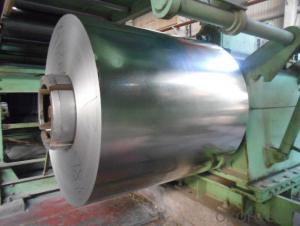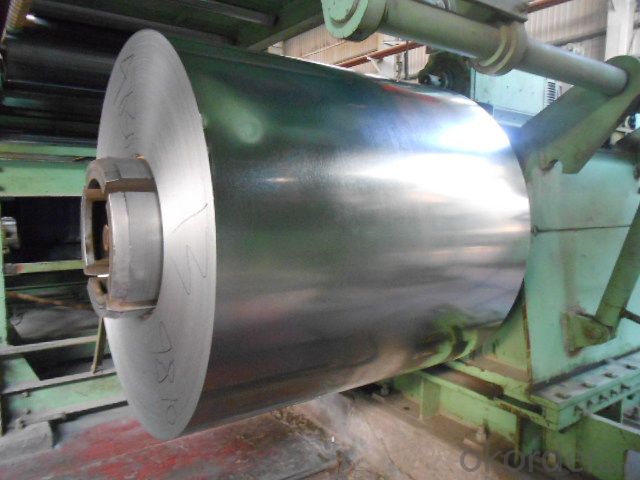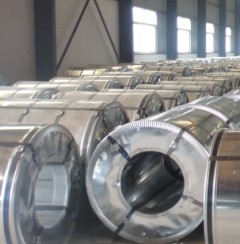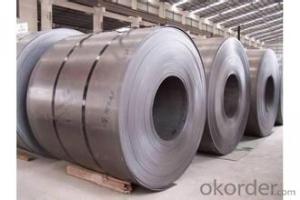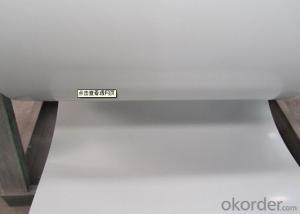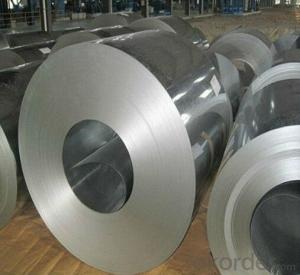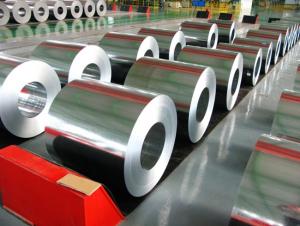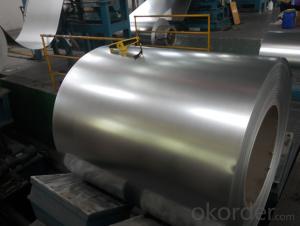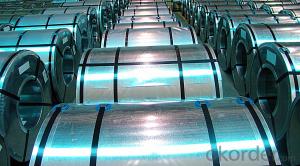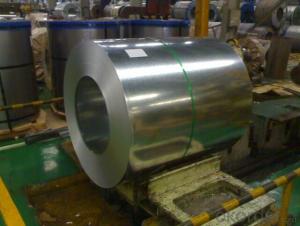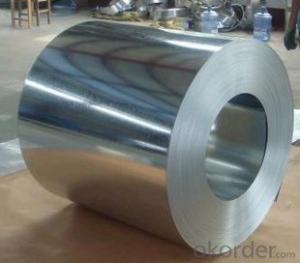Hot Dip Galvanized Steel Coil- in Best Quality
- Loading Port:
- Shanghai
- Payment Terms:
- TT OR LC
- Min Order Qty:
- 100 m.t.
- Supply Capability:
- 10000 m.t./month
OKorder Service Pledge
OKorder Financial Service
You Might Also Like
Hot-dip Zinc Coating Steel Building Roof Walls
1.Structure of Hot-Dip Galvanized Steel Sheet Description:
Hot-dip galvanized steel coils are available with a pure zinc coating through the hot-dip galvanizing process. It offers the economy, strength and formability of steel combined with the corrosion resistance of zinc. The hot-dip process is the process by which steel gets coated in layers of zinc to protect against rust. It is especially useful for countless outdoor and industrial applications. Production of cold formed corrugated sheets and profiles for roofing, cladding, decking, tiles, sandwich walls, rainwater protective systems, air conditioning duct as well as electrical appliances and engineering.
2.Main Features of the Hot-Dip Galvanized Steel Sheet:
• Excellent process capability
• Smooth and flat surface
• Workability, durability
• Excellent anticorrosive property
• High strength
• Good formability
• Good visual effect
3.Hot-Dip Galvanized Steel Sheet Images:
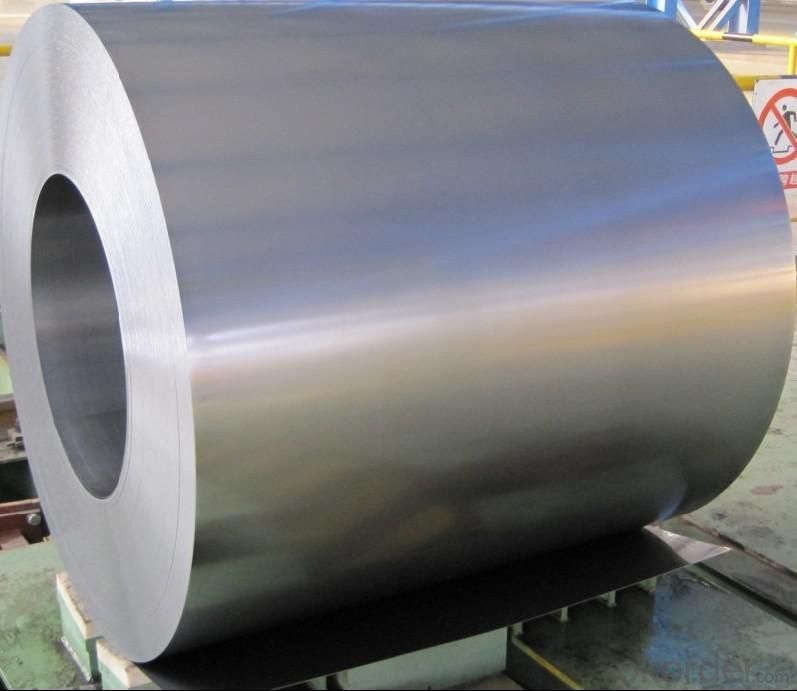
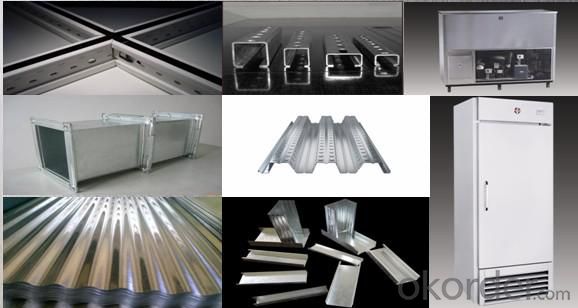
4.Hot-Dip Galvanized Steel Sheet Specification:
Standard: ASTM, JIS,EN
Grade: CS, DX51D+Z,SGCC, SS 230~550,S220GD+Z~S550GD+Z, SGC340~SGC570
Thickness: 0.1mm~5mm
Width: max 2000mm
Coil weight:3-12 MT
Coil ID:508/610mm
Surface structure: zero spangle, regular spangle or minimum spangle
Surface treatment: Chromate treatment, Oiled/dry, skinpassed/non-skinpassed
Packing: Standard seaworthy export package
Technology test results:
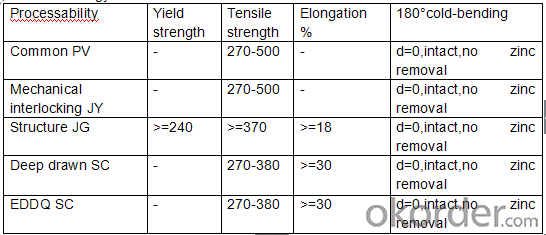
5.FAQ of Hot-Dip Galvanized Steel Sheet:
We have organized several common questions for our clients,may help you sincerely:
1.How about your company?
A world class manufacturer & supplier of castings forging in carbon steel and alloy steel,is one of the large-scale professional investment casting production bases in China,consisting of both casting foundry forging and machining factory. Annually more than 8000 tons Precision casting and forging parts are exported to markets in Europe,America and Japan. OEM casting and forging service available according to customer’s requirements.
2.How to guarantee the quality of the products?
We have established the international advanced quality management system,every link from raw material to final product we have strict quality test;We resolutely put an end to unqualified products flowing into the market. At the same time, we will provide necessary follow-up service assurance.
3. How long can we receive the product after purchase?
Usually within thirty working days after receiving buyer’s advance payment or LC. We will arrange the factory manufacturing as soon as possible. The cargo readiness usually takes 15-30 days, but the shipment will depend on the vessel situation.
- Q: I own a crappy steel string acoustic and a very nice electric guitar.I have saved up to buy a new acoustic but I cannot decide to just invest in a better steel string or explore around with a nylon string. From others experience, will I get my fill of satisfaction of playing on a nylon, or should I stick to a steel string?
- Nylon string guitars are mostly classical guitars ment for classical and flamenco music, both guitars, nylon and steel, sound really well. My dad has a steel acoustic and I have a nylon classical guitar by Cordova It just depends on what style of music you play. When your buying a new guitar, play as many guitars to try them out once you find what you which one you want, you'll know
- Q: I'm getting microdermals, from a very experienced piercer, but they don't have titanium and I know titanium is the best for this, but is Grade A Srugical Steel okay too?(P.S. also instead of getting flat heads, of the microdermals, I'm getting flat crystal like ones, are those okay? I know to be careful, I am veryyyy careful with my body, so much that I'm worried I'm going to overly do it when I get them and dry out the skin or something hahaa xp)THANK YOU ALL IN ADVANCE FOR THE HELP
- surgical steel is fine. if you really want titanium ask your piercer if you can buy them yourself and if he can use them. the diamond kind will be okay especially if you are the careful type :)
- Q: how much pressure can steel withstand? and how much pressure can concrete withstand? per m3 or cm3? thanks
- Your question is not specific,there are many types of Concrete according to ratio and many types of steel but if want general answer,Concrete is good for compression and for 1:2:4 Cement-Sand-Gravel Ratio up to 4000 psi but very weak in tension where as tor steel is good for tension and is about 70000-80000 psi .
- Q: Well im currently doing a project. Wanna help me? Because trust me, i really need it. You know how steel was created in China? If you didnt, you just learned something newww(: but anyways got any info on that? Websites? or just info from websites? Well lemme know because if its the best you get Best Answer Easy points right? (: Okay thanksss (:
- Steel is created in a primitive way whenever iron oxide ore (red dirt) is mixed with wood and burned. Seemingly everyone has a pet theory how their own selected country was the first to notice and do it on purpose. Regards, Larry.
- Q: How are steel coils used in the production of agricultural machinery parts?
- Steel coils are commonly used in the production of agricultural machinery parts due to their strength and versatility. Agricultural machinery parts such as blades, plowshares, and cultivator tines require materials that are durable and able to withstand harsh conditions. Steel coils provide the necessary strength and durability to these parts. The process starts with the steel coils being unwound and cut into the desired lengths. These lengths are then fed into a machine where they undergo various shaping processes such as bending, cutting, and stamping. This allows the steel to be formed into the specific shapes required for agricultural machinery parts. Once the desired shape is achieved, the steel parts are often heat-treated to enhance their strength and durability. This process involves heating the parts to high temperatures and then rapidly cooling them. Heat treatment increases the hardness and toughness of the steel, making it more resistant to wear and tear in the agricultural field. After heat treatment, the steel parts may undergo additional processes such as welding, surface coating, or painting, depending on the specific requirements of the machinery. These processes further enhance the durability and longevity of the parts. Overall, steel coils play a crucial role in the production of agricultural machinery parts by providing the necessary strength, durability, and versatility. The use of steel coils ensures that these parts can withstand the demanding conditions of agricultural operations, ultimately contributing to the efficiency and productivity of the farming industry.
- Q: They both sell the same thingIf prices are to high companies won't by the steelIf prices are to low then the steel company won't earn enoughWhy are some steel companies more successful than others
- Steel is a global commodity. There is some variety in product (flat rolled, tubing, etc), but basically the same product worldwide. Cost to the customer includes shipping of a very heavy product. Inputs are also heavy and costly to ship. Inputs: - Coal - Iron Ore. Some firms have the ability to recycle old steel, a competitive advantage. - Energy (very energy intensive industry) - Labor - Machinery. A new blast furnace is more efficient than 50 years old. So the most profitable steel firms have some of these characteristics: - Proximity to raw materials - Proximity to customers - Access to cheaper means of transportation; rail and sea - Newer machinery - Cheaper labor force - Reasonable cost for electricity and fuel for furnaces
- Q: How are steel coils priced?
- Steel coils are typically priced based on several factors including the current market demand and supply, the grade and quality of the steel, production and transportation costs, as well as any additional processing or customization requirements.
- Q: If i get a samurai sword made of carbon steel, what is the hardest thing i can hit before it breaks? Or will it not break?
- Real katanas need regular maintenance, they rust easily and dull quickly. If you get a replica chances are it will break the first time you hit anything with it. If you can find one, the WW2 officers swords were of good quality and the modern metals mean it doesn't rust or dull as easily. If you do insist on getting a carbon steal blade be ready to oil it often. It will rust at the mention of moisture.
- Q: What could the impurities in steel wool be?And why are they there?Thanks for your help :)
- Impurities in steel wool would be of the elemental type. I'm sure steel wool is a mixture of different low grade not good for much of anything else materials. There may be excessive impurities such as lead, cobalt, boron, aluminum etc... in the steel wool. There may also be solvent residue on the wool i.e cleaner, lubricant etc.. I'm sure every batch is different - I know the iron level is high thats what makes them rust quickly.
- Q: How are steel coils used in the production of metal roofing panels?
- Steel coils are a critical component in the production of metal roofing panels. These coils, which are rolled sheets of steel, play a crucial role in shaping and forming the panels. To start with, the steel coils are unwound and fed into a machine called a roll former. This machine uses a series of rollers and dies to gradually shape and bend the steel into the desired profile of the metal roofing panel. The coils pass through these rollers, which apply pressure and force to mold the steel into the required shape and size. Once the metal has been formed into panels, it may undergo additional processes to enhance its durability and appearance. This can include galvanizing or coating the panels with various protective layers to prevent corrosion and improve weather resistance. These additional steps help to ensure that the metal roofing panels are able to withstand harsh environmental conditions and provide long-lasting performance. Steel coils are preferred in the production of metal roofing panels due to their strength and durability. Steel is known for its exceptional strength-to-weight ratio, making it a suitable material for roofing applications. Additionally, steel is highly resistant to various weather conditions, including high winds, heavy rains, and extreme temperatures. This makes it an ideal choice for roofing panels that need to withstand the elements and provide reliable protection for buildings. Overall, steel coils are an essential component in the manufacturing process of metal roofing panels. They are used to shape and form the panels, which are then further processed to enhance their durability. The use of steel in these panels ensures that they can withstand harsh weather conditions and provide long-lasting performance for residential, commercial, and industrial buildings.
Send your message to us
Hot Dip Galvanized Steel Coil- in Best Quality
- Loading Port:
- Shanghai
- Payment Terms:
- TT OR LC
- Min Order Qty:
- 100 m.t.
- Supply Capability:
- 10000 m.t./month
OKorder Service Pledge
OKorder Financial Service
Similar products
Hot products
Hot Searches
Related keywords
